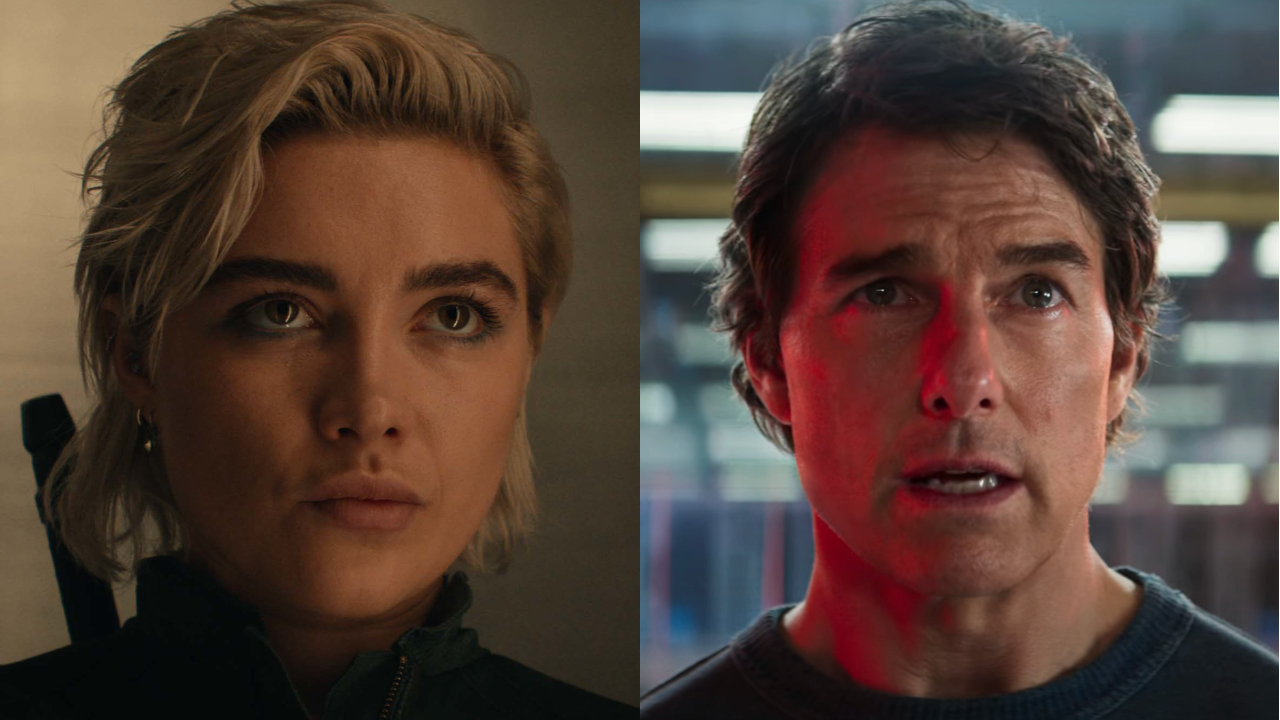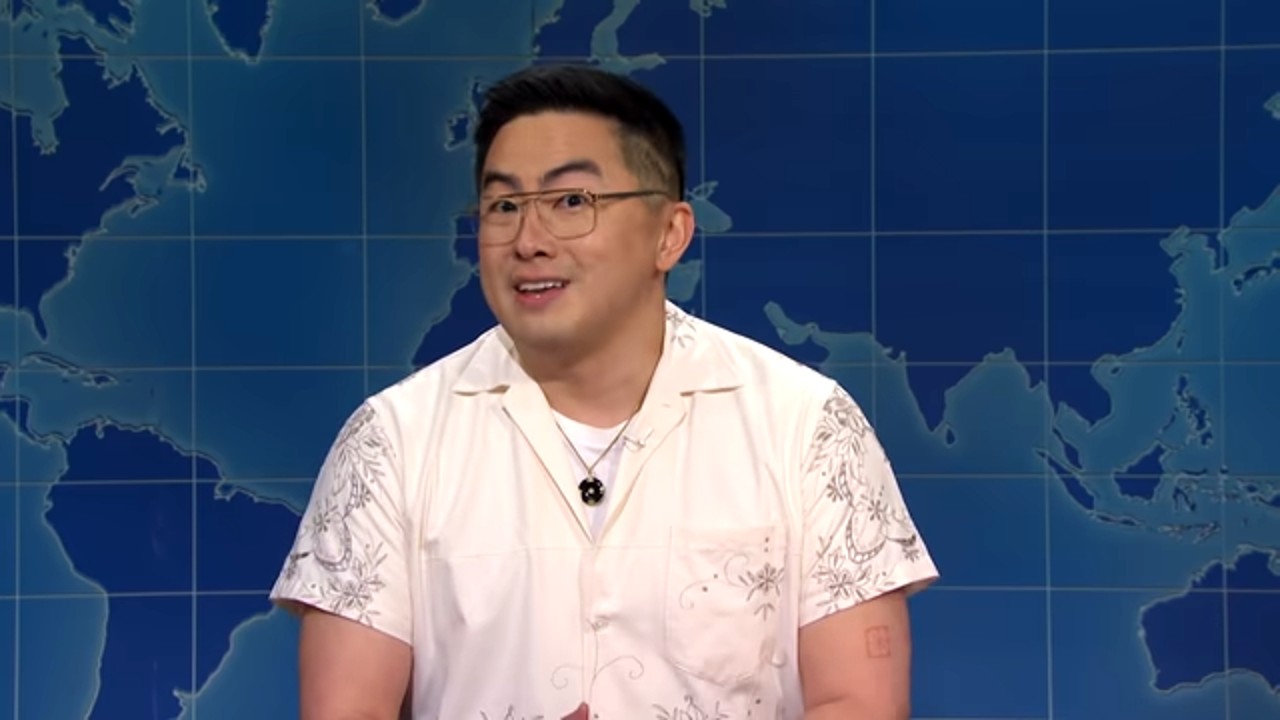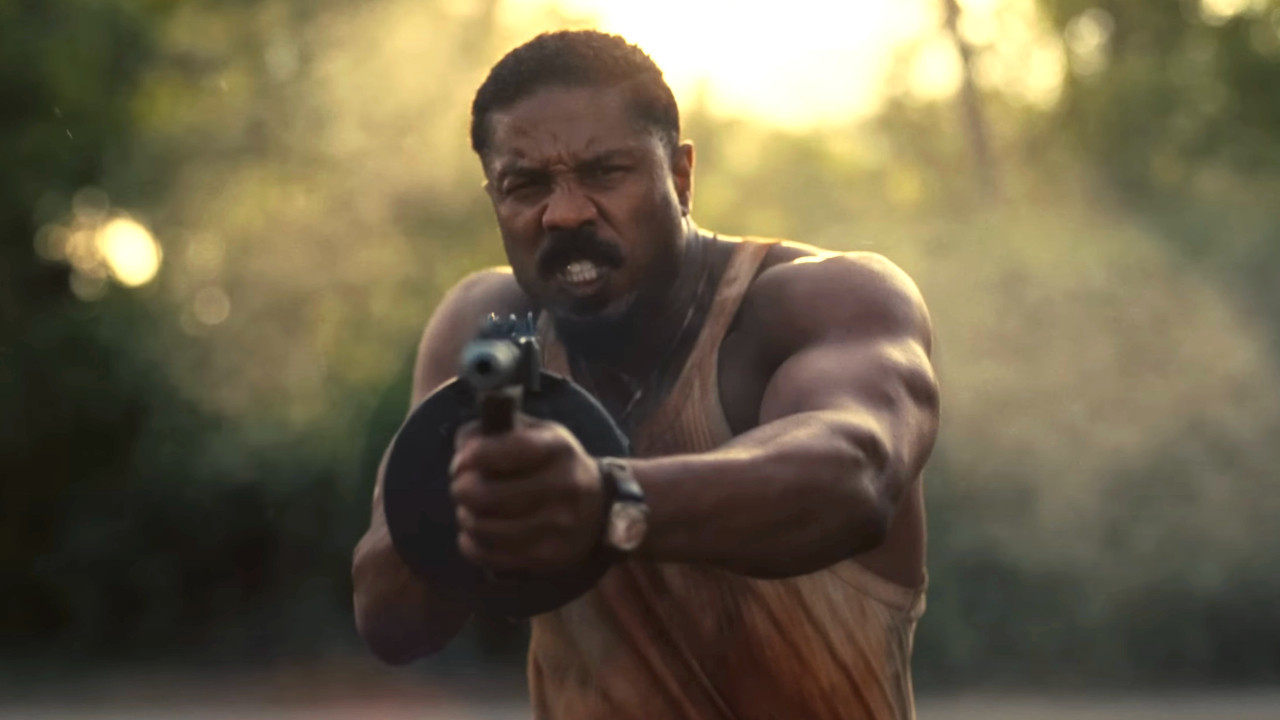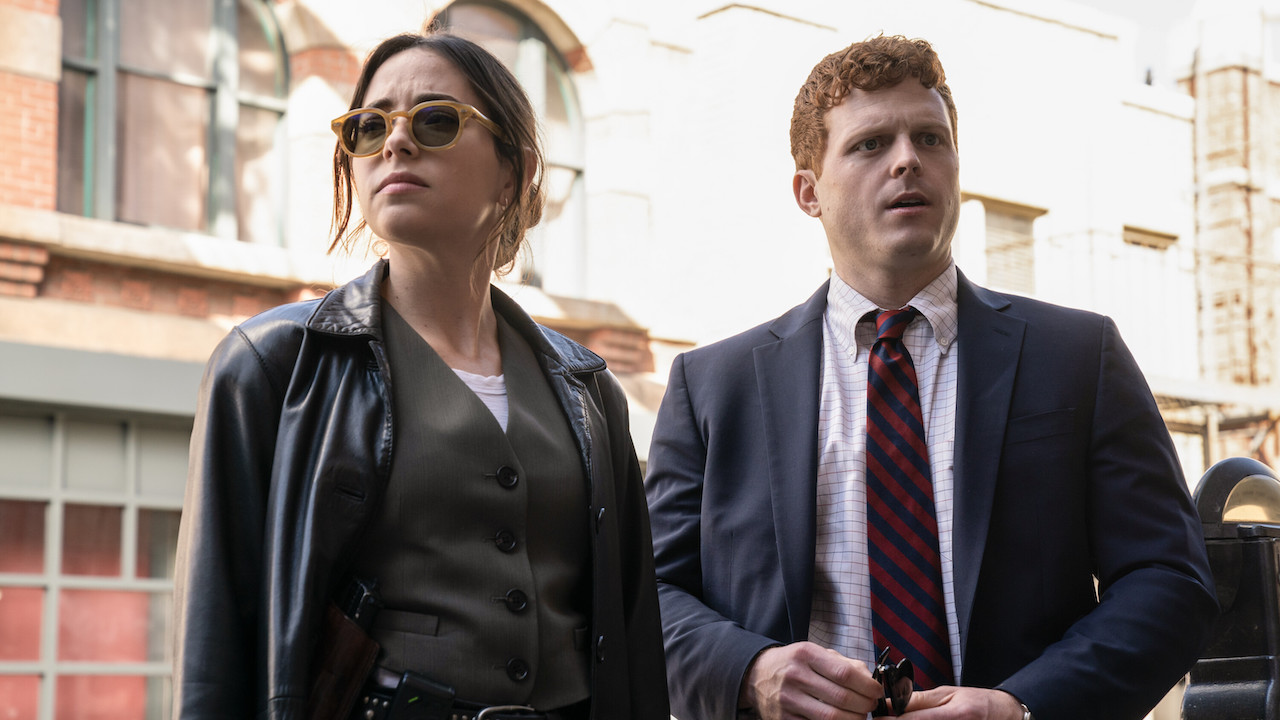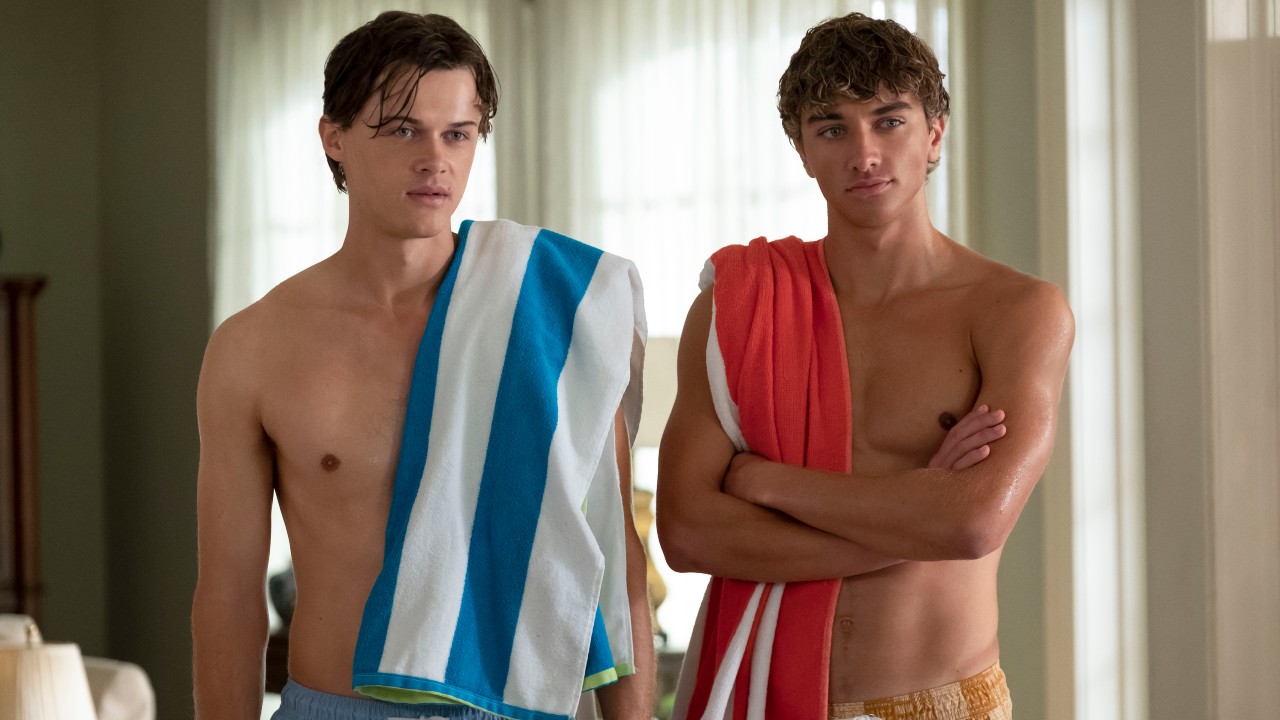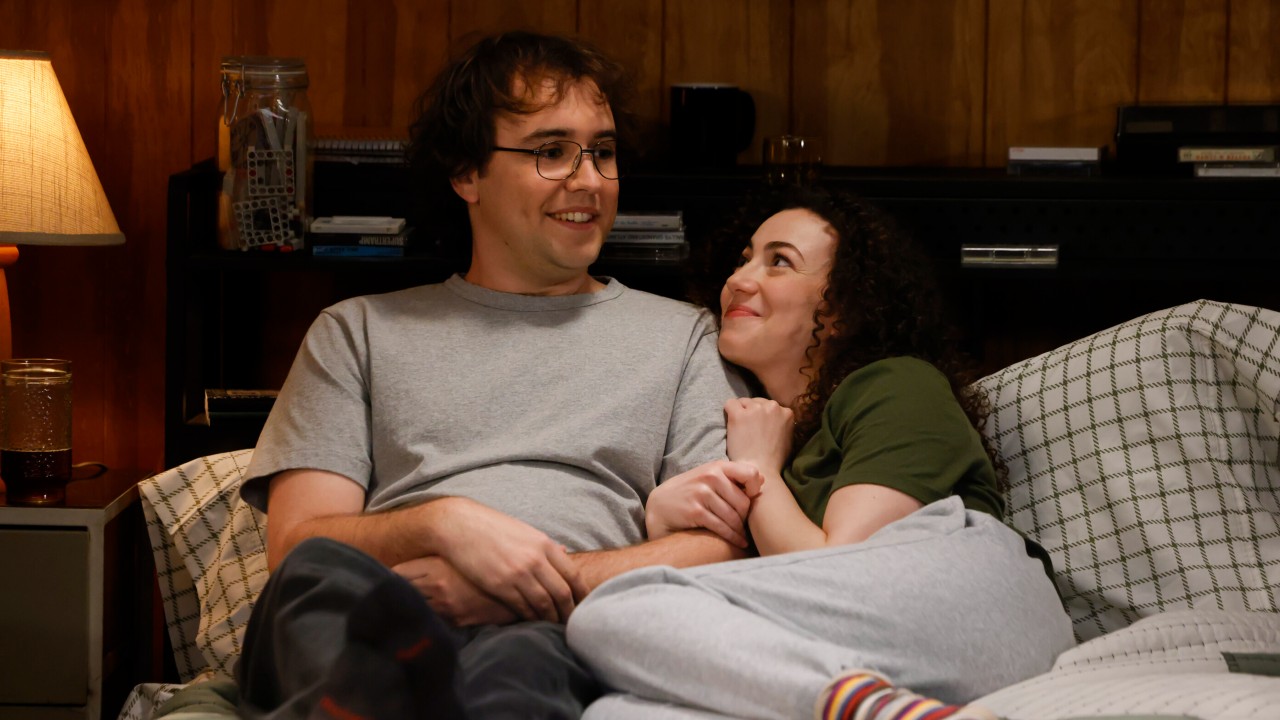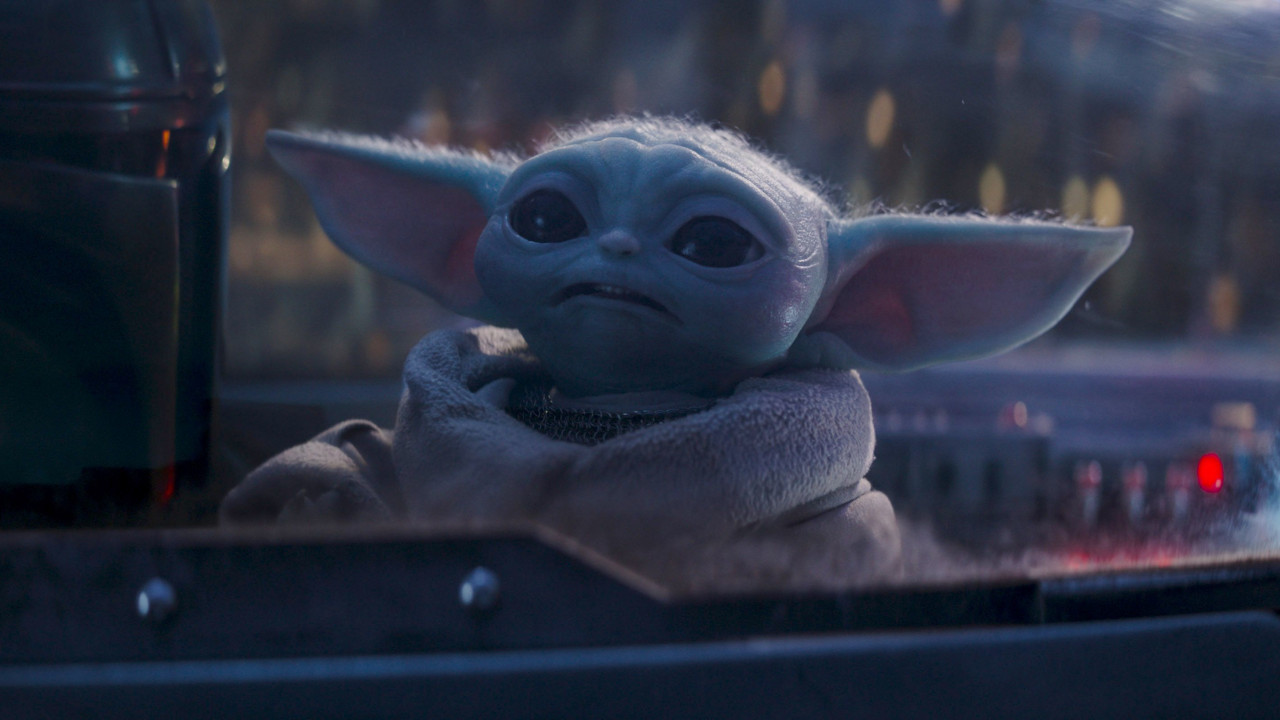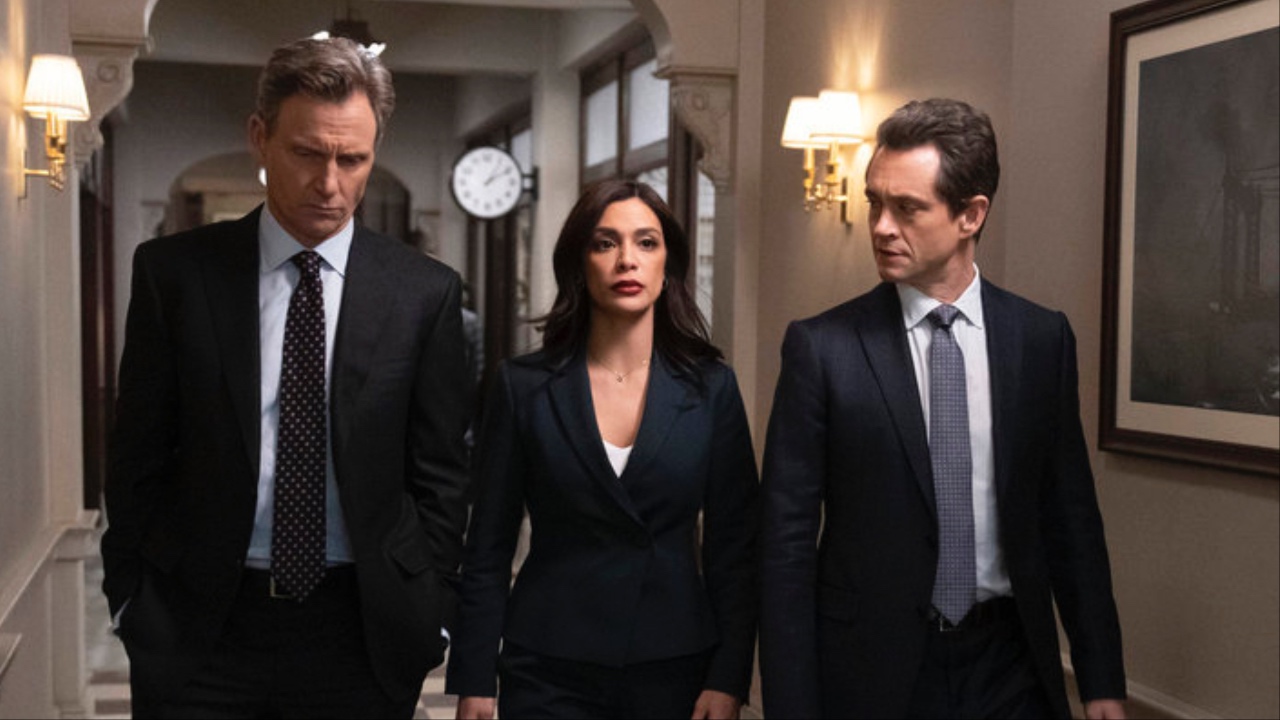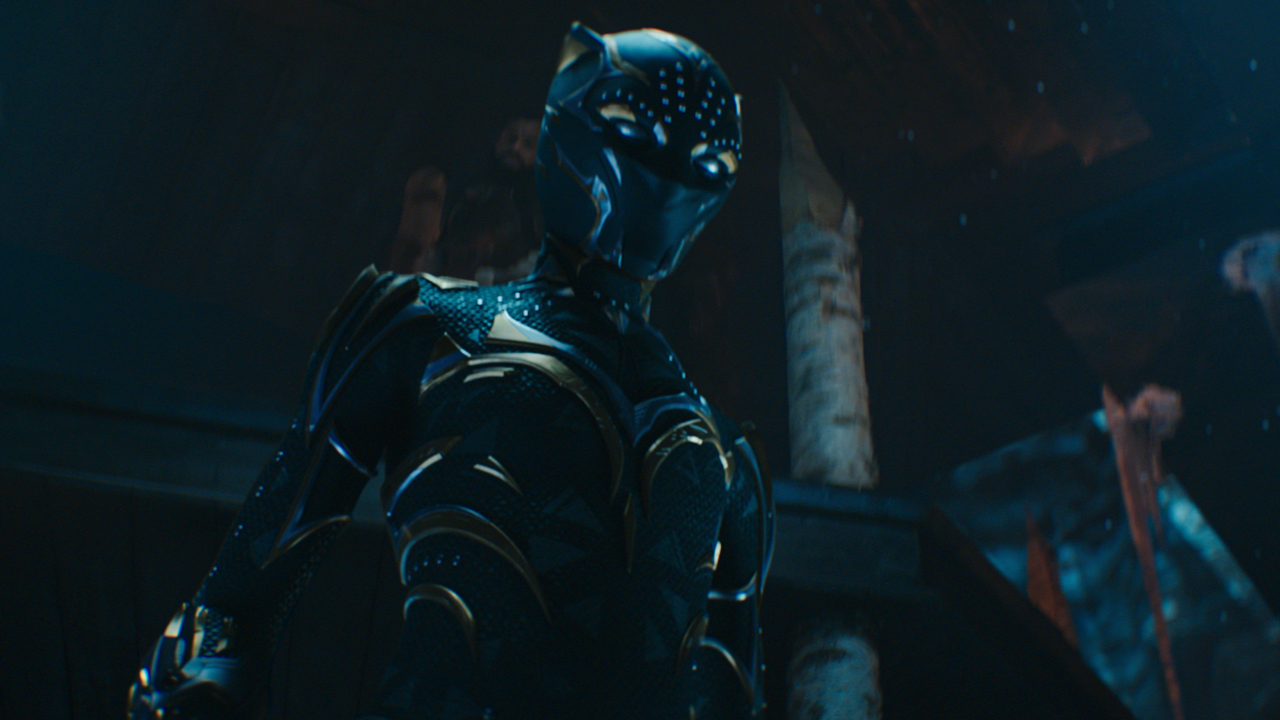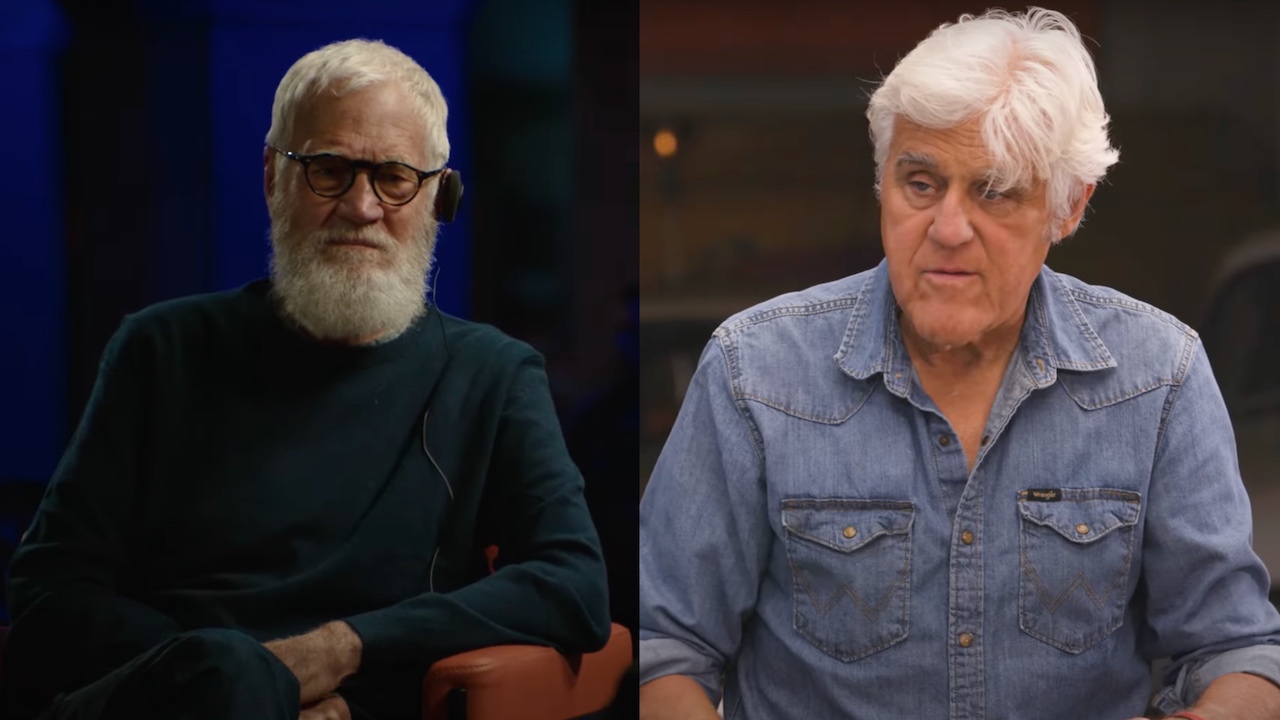Talking To Viola Davis And Octavia Spencer On The Mississippi Set Of The Help
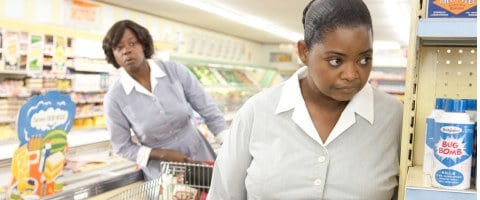
The action on camera the day I visited the set of The Help mostly revolved around the white characters, a group of privileged women gathering for a day of playing bridge, eating perfect little hors d'oeuvres and gossip. But those kinds of days in 1963 were only possible thanks to the African-American women who worked as the help, doing everything from ironing the tablecloths to babysitting the children while their mothers whiled away the afternoon. The fact that The Help focuses on both sides of that divide is what makes it such a special book, and will likely set the movie apart from most others that tackle the Civil Rights Era.
So as The Help's white stars Bryce Dallas Howard and Emma Stone worked on the set, the African-American leads Viola Davis and Octavia Spencer took a day off camera-- and out of their gray and white maid's costumes-- to talk to me and a group of other journalists on the set. Davis had actually filmed a scene that morning at the 60s-era ranch house where the set was located, playing Aibileen, the long-serving maid to Elizabeth Leefolt, the character holding the bridge party. Aibileen and Spencer's character Minny are, along with Emma Stone's Skeeter, the three narrators of Kathryn Stockett's novel. We meet Aibileen developing a tight relationship with Elizabeth's toddler daughter, Minny struggling to hold down her tongue and work for the inexperienced young housewife Celia Foote (Jessica Chastain), and Skeeter trying to live up to her mother's expectations to be a proper Southern woman while holding ambitions for something bigger. The three women's lives intersect when Skeeter decides to write a book about the real experiences of African-American women working as home help, and enlists Aibileen and Minny to both give her interviews and help recruit other women.
Davis, as the Oscar nominee for Doubt and a newly minted Tony winner as of last summer's set visit, was an obvious choice to be cast as Aibileen. Spencer, a character actress with roles in films like Bad Santa and Dinner for Schmucks, had a far more unusual route to playing her role. Check out my conversation with both actresses below; for the first part of my set visit report click here, and check back later for more from the set, including interviews with Bryce Dallas Howard and the movie's director Tate Taylor. The Help opens August 10.
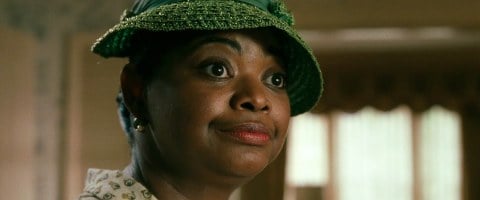
Octavia Spencer
So Kathryn Stockett based the character of Minny on you, right?
Very, very loosely. I’ll give you the nuts and bolts of the story. I met Tate about fifteen years ago on A Time to Kill-- we were both PAs. We moved out to L.A. about six months later, separately, and we just remained friends. He and I became the best of friends and he was always telling me stories about living in New York with Kathryn and his other friend Laura. Maybe about 7 or 8 years later, we were in New Orleans on a vacation with a big group of friends and that’s when I met her for the first time. Needless to say my personality is not the best when i am hungry or hot. You can imagine it was hot and I probably was hungry. I know they were dillydallying and wanted to go shopping. At the time she was making all of the different characters and didn’t know how she was going to go with Minny as far as her beautiful physique and her personality. So that part of Minny is essentially that part of Octavia that people sometimes see.
And how did it go from there?
CINEMABLEND NEWSLETTER
Your Daily Blend of Entertainment News
It was kind of funny because when I first met [Kathryn] she’s like “I’m writing a book.” and I’m thinking, "Who isn’t writing a book?" but she made me promise to read it. Then a couple of years later I saw her and she came to our set and made me promise to read it. She said, "I based a character loosely on you." When I read it --- I’m not a big fan of Gone with the Wind and I thought immediately, "Oh my god another Gone with the Wind. I’m going to kill her.' I literally got past that first page -- it was the first line or two of the book. I had a bachelorette party to attend that night, it was raining, the manuscript came and I hated her even more, but I said, "I’m going to sit there with that book" and I read it and I ended up staying up all night to finish it and called her the next morning and I was so relieved. How often do your friends do something that’s good? Never! It never happens.
We've heard that same kind of concern you had about a white woman writing in the voice of these black characters, and now Tate, a white man, is directing the film. Do you think of that as a complication too?
We’ve gotten so PC and we’ve gotten so weirded out. If she wrote every black character with the same exact voice then there would be like a cause for concern, but she didn’t do that and I think that gives it authenticity. It made me feel that I was walking in someone else’s shoes. I also think it’s very lyrical and beautiful to have the differences in the dialect. Aibileen's dialect is more distinctive that Minny’s. Minny’s dialect is more distinctive that Yule Mae’s and Yule Mae doesn’t really have a dialect. I have a problem with the fact that people are making that an issue. Oh, a white girl and then they read the book and they say, "Oh. It's not Mammy [from Gone with the Wind]."
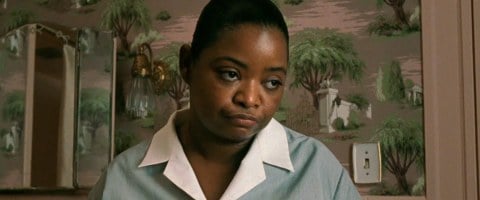
Is it hard for you to get back into the history of that era?
It’s still very hard because Greenwood has a lot of history -- and not good history. I’m still kind of reconciling that and I’m using it for Minny. What I love about the book is that it makes this time in history very palatable. Even though it is the A story, it’s not the focal point. It’s about these relationships what these women form and the bonds. It’s really hard to go back and watch all of the footage. The biggest challenge for me [was] not being an abused woman and not being a person who had those types of limitations that Minny and Aibileen have. I also have a multi-cultural group of friends who are from all socio-economic backgrounds and Minny and Aibileen knew poor people. Minny especially did not trust or want to be a part of anybody else's world that didn’t go through what she went through. That was a challenge for me: How to take a person out of 2010 and go back to 1963. It pre-dates me, so it’s been a challenge.
Another big part of the book is the way the white women would think about how they felt about the help, but would never think about what those black women might have thought of them.
Right, right. Racism wasn’t just here. It was all over the country. My analogy is: In the South, you are raised to hate the race but love the individual. In the rest of the country you love the race, but you hate the individual. People who have the most supposedly racist grandparents, you go to their house, and you don’t even know. It’s like, "Oh my god. Your grandfather was a KKK?" You’re going to like who you like and you’re not going to like who you’re not going to like. Believe me, I’m not trying to justify anything, because racism is there, but there’s also sexism and ageism. As we women know, there are so many other hurdles that we have to cross that I would love it if we could stop having the race conversation so that we can get women further on. You know a female president now that we have an African American president. Maybe we can get an Asian female, a gay person?
Are you jealous that you don’t get to wear the pretty costumes, and are always wearing the maid's uniform?
I have one costume that I’m foaming at the mouth over. It’s my church costume. Every day, I can’t wait to see what Bryce is wearing.
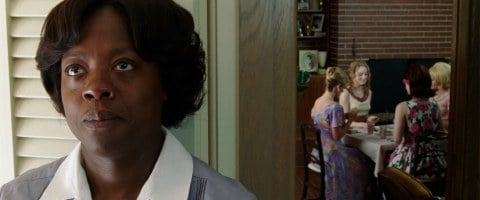
Viola Davis
How easy is it to go back in time wearing these costumes and being on a set like this?
It's a little easier because you're in Mississippi. It's a different world down here; it's a different energy so it's a different character in and of itself. It almost informs everything that you do since being here.
What kind of accent and dialect work did you have to do, not only playing someone from down here but someone from 50 years ago?
That is a work in progress because I was born in South Carolina, I was raised in Rhode Island, and my mother still has a thick Southern accent, so it's her voice that I have in my head - which is not a Mississippi dialect. So I'm caught between two worlds right now. [laughing] We have a dialect coach on set and she keeps me honest. I told her to always tap on my shoulder. I didn't want [Aibileen's] dialect to be as strong as it was in the book. I've been online doing all kinds of research and that seems to be the constant criticism, that Aibileen's accent was just too thick. And for me, I don't want anything to distract from the character. I don't want anyone to feel like they're out of a movie, you know?
So you made it more accessible?
I do believe that there are African Americans who have thick accents. My mom has a thick accent; my relatives have thick accents. But sometimes you have to adjust when you go into the world of film, TV, theatre, in order to make it accessible to people. It goes into race which goes into cultures, cultural differences and all of that, which can be very frustrating because you just want to be as authentic as possible. But I just felt I had to tone it down a bit.
Do you feel out of all the roles that you've done there's a little more pressure with this one because it's a story that hasn't been told?
Yeah, I do. I feel a lot of pressure because I feel like there's two stories going on. There's the story which is the experience of a lot of Caucasians growing up with their African-4American nannies and maids, and them being the surrogate mothers when their mothers were missing. But then there's the other story, and it's the story of these maids--my mother's story--and that story's very different, of who these women were when they went home, when the public persona and the mask were ripped apart. And sometimes that picture and that portrayal, that's the part that makes it dirty. That's the part that sometimes makes it not palatable. That's the story that I need to honor - me, personally, as an actor. So I feel a tremendous responsibility to the black community, to my mother, to all the women who were surrogate mothers and who worked for people who didn't know who they were and didn't care to know who they were, let's be honest. So, yes.
Is it difficult being somebody from 2010 going back in that world and having to stand there and play someone who doesn't say anything when stuff is being said around her? How do you convey those feelings without making it contemporary?
Well, exactly that. Your internal dialogue has got to be different from what you say. And, you know, in film, hopefully that registers and speaks volumes. It's always the unspoken word and what's happening behind someone's eyes that makes it so rich. At the same time, at some point you have to break out of that because if you stay in that place, then do you ever really hear the voice? I mean, in the book you do because you get stream of consciousness. On film, you don't. You kind of get the feeling.
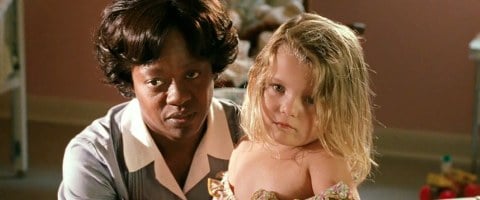
Did it help doing Fences on Broadway right before making this?
Yeah, I guess it did. It helped. You have to understand, Aibileen was born in 1911, so that's 53 years of really incredible history. And in terms of what was going on with the race relations, she was born in a time of reconstruction after slavery so what she's seen and what she's experienced is something very deep. I'm familiar with all of that through doing August Wilson's plays, actually. And that's the thing. You feel an incredible responsibility not to make it so sanitized. That's the problem I always had with Hollywood with race is stories about race are always sanitized. You've seen them time and time again, so what differentiates this story from all of the rest where two hours have gone by and you still have not heard the voice of the people that supposedly the movie is about, the indigenous culture, the voice that's never heard? And so if two hours have gone by and you still haven't heard that voice...it's difficult.
Reading the book, you get these twinges of disgust with human nature, especially with the language. Do you have any trouble separating yourself from this while you're working? Does it sometimes stay with you when you leave?
You do. You feel it. You the rage, you feel the frustration, you feel the repression. You feel absolutely the intense level of sadness of not realizing your potential, of possibly going to your grave without really ever actually fulfilling any of your dreams and hopes. That's the part that you really feel. I mean, because let's face it, now we have a chance to actually speak our minds more. Everyone does. We have a culture where people talk all the time about how they feel, even when it's politically incorrect. And so to be silent so much, absolutely. It's hard not to carry that rage when you leave the set.
But you're having some fun here, too?
Well, there's a Wal-Mart. I love Wal-Mart. You can put that down. I love Wal-Mart. My husband and I hang out there.
How are you dealing with the heat?
I've had heat rash already. I've been dealing with it. That's another character in and of itself too. Another feeling of that feeling of being repressed and suffocated.
Staff Writer at CinemaBlend

